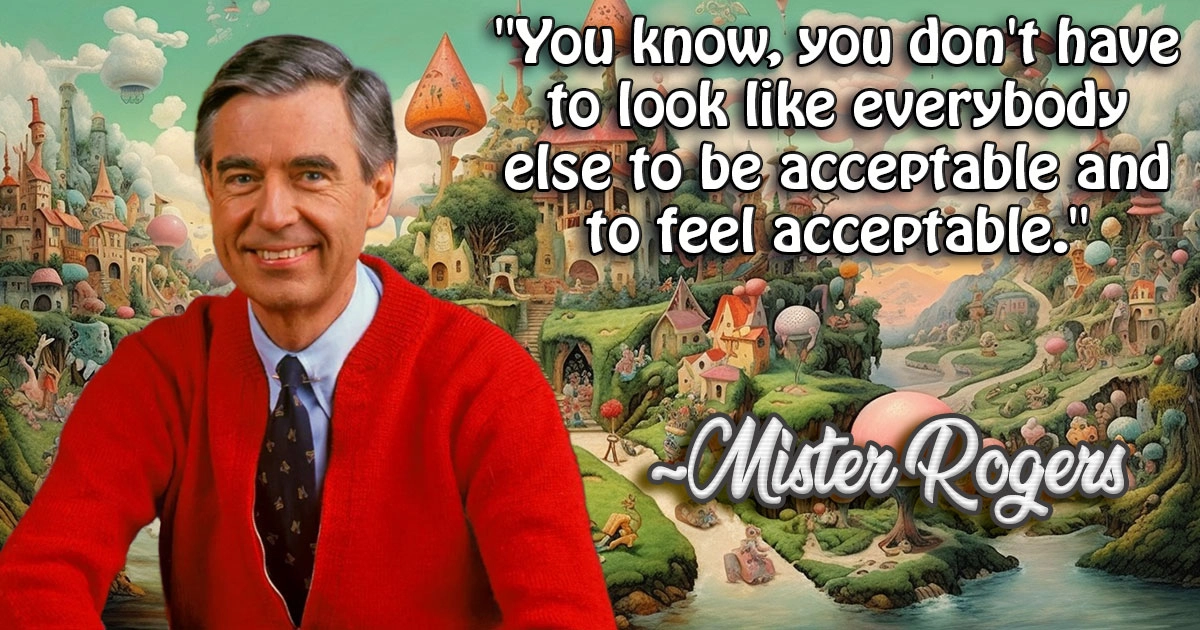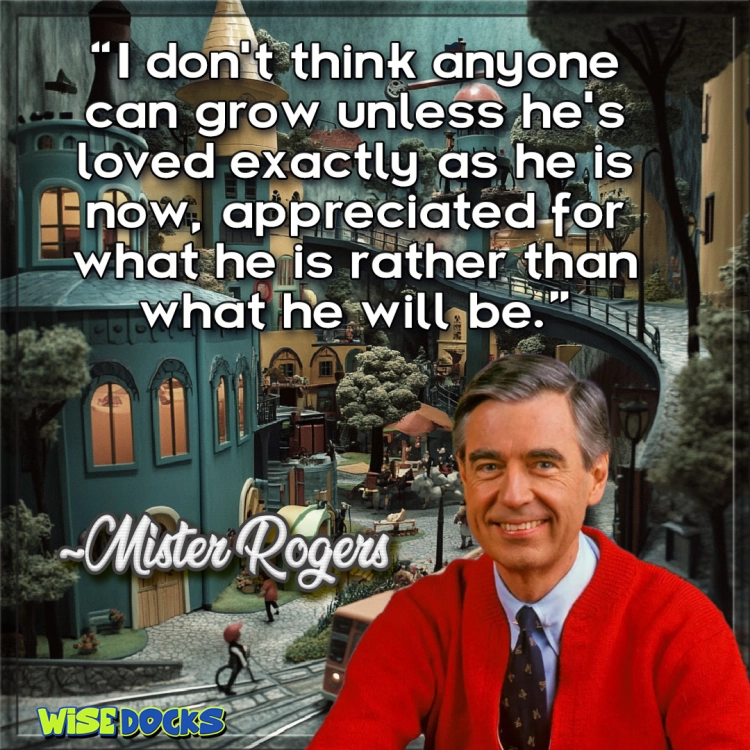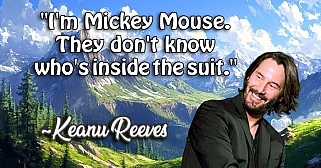Mister Rogers Was A Gentle Giant

Mister Rogers
In a world that often feels fast-paced, chaotic, and overwhelming, there remains a quiet corner of solace, kindness, and understanding. That corner belongs to Fred McFeely Rogers, better known as Mister Rogers. Over the course of more than three decades, this soft-spoken man in his signature cardigan sweater and sneakers welcomed millions into his television neighborhood. His influence was profound, stretching far beyond the bounds of children's television into the very fabric of society. This is the story of Mister Rogers and the indelible impact he had on the world.

A Humble Beginning
Fred Rogers was born on March 20, 1928, in Latrobe, Pennsylvania, a small town near Pittsburgh. From an early age, Fred displayed a deep sensitivity and empathy for others, characteristics that would later define his career. As a child, Fred was often sick and spent a lot of time alone, developing a strong imagination and a love for music. He learned to play the piano at a young age and found solace in creating his own world through music and storytelling.
In college, Rogers studied music composition at Rollins College in Florida, where he met his future wife, Joanne. His deep love for music was something he carried with him throughout his life. After graduating, he returned to Pennsylvania, planning to attend seminary. However, a visit home during the break introduced him to a new medium that would change his life—and countless others.
Fred saw his first television while home from college and was immediately struck by its potential to educate and nurture. He was disheartened by the chaotic, slapstick content aimed at children and decided to change the direction of television. He saw the screen not as a tool for mindless entertainment but as a window into a world of imagination, creativity, and emotional growth.
The Birth of a Neighborhood

Fred Rogers began working in television in the early 1950s, starting as an assistant and floor manager on NBC's "The Kate Smith Hour" and other programs. He then moved back to Pittsburgh to help develop children's programming for WQED, the nation’s first community-sponsored educational television station. It was there that "Mister Rogers' Neighborhood" was born.
"Mister Rogers' Neighborhood" first aired nationally on February 19, 1968, and quickly became a staple of American television. The show was unlike anything else on TV. It wasn't flashy or loud. Instead, it was a quiet, thoughtful, and profoundly respectful dialogue with children. Each episode began with Fred Rogers entering his home, changing into his iconic cardigan and sneakers, and then speaking directly to the camera, inviting the viewer into his world.
Fred’s philosophy was simple yet revolutionary: He believed that children deserved to be treated with respect and honesty. He didn't shy away from difficult topics. Instead, he approached them with sensitivity and care, addressing subjects like divorce, death, war, and even assassination in ways that children could understand and process. Fred Rogers didn’t talk down to children; he met them at their level, acknowledging their feelings and helping them navigate the complexities of life.
A Beacon of Compassion and Understanding
What set Mister Rogers apart was his deep understanding of childhood and his unwavering commitment to kindness and compassion. At a time when television was becoming increasingly commercialized, with quick cuts, flashy visuals, and marketing-driven content, Mister Rogers' Neighborhood remained a bastion of sincerity.
Fred Rogers was a Presbyterian minister, but he rarely spoke about religion on his show. Instead, his faith manifested in his actions and his belief in the inherent worth of every individual. He believed that love and kindness could transcend all boundaries, and he made it his mission to share this message with the world. His show was grounded in the idea that every child is special and worthy of love, just as they are.

One of the most iconic moments of "Mister Rogers' Neighborhood" came in 1969, during a time of intense racial tension in the United States. In a simple but powerful scene, Fred Rogers invited Officer Clemmons, an African-American police officer played by Francois Clemmons, to join him in cooling his feet in a small wading pool. As they sat side by side, their feet in the water, Fred shared his towel with Clemmons. This quiet act of friendship and equality was a radical statement at the time and sent a powerful message about acceptance and unity.
Mister Rogers' Neighborhood as a Safe Haven
For many children, "Mister Rogers' Neighborhood" was more than just a TV show—it was a safe haven. Fred Rogers understood that the world could be a scary place, especially for children. He wanted his neighborhood to be a place where children felt safe, loved, and accepted. He used the show's characters and settings to explore emotions and help children understand and manage their feelings.
Characters like Daniel Striped Tiger, Lady Aberlin, and King Friday XIII represented different aspects of human nature and emotions. Through their interactions, Fred Rogers taught children about empathy, understanding, and the importance of expressing their feelings. He helped children understand that it was okay to be sad, angry, or scared, and that these feelings were a natural part of life.
Fred Rogers also understood the power of routine and ritual in providing comfort. Every episode followed the same structure, with Fred singing "Won't You Be My Neighbor?" as he entered his home, changing into his cardigan and sneakers, and then engaging in thoughtful conversations and activities. This predictability provided a sense of stability and security for children, many of whom were facing challenges and uncertainties in their own lives.
Extending Kindness Beyond the Screen
Fred Rogers' impact extended far beyond the confines of his television show. He was an advocate for children and a tireless supporter of public television. In 1969, he appeared before the U.S. Senate Subcommittee on Communications to defend funding for PBS. His heartfelt testimony, in which he spoke about the importance of nurturing children's emotional well-being, was credited with helping secure $20 million in funding for public broadcasting.
Mister Rogers also wrote numerous books for children and parents, offering guidance on how to navigate difficult situations and emotions. His gentle, reassuring voice came through in his writing, providing comfort and support to families around the world.
Even after "Mister Rogers' Neighborhood" ended its original run in 2001, Fred Rogers continued to be a source of inspiration and comfort. He received countless letters from fans of all ages, many of whom shared how his words and actions had helped them through difficult times. Fred took the time to respond to as many letters as he could, offering words of encouragement and support.
A Legacy of Love and Kindness
Fred Rogers passed away on February 27, 2003, at the age of 74. The world mourned the loss of a man who had touched so many lives with his kindness and compassion. Yet, even in death, Mister Rogers' legacy continues to live on.
The lessons Fred Rogers taught through his television show remain as relevant today as they were when the show first aired. In a world that often feels divided and filled with uncertainty, the values of love, kindness, and understanding that Mister Rogers championed are more important than ever.
Mister Rogers' impact can be seen in the countless people who have been inspired by his example to pursue careers in education, psychology, and social work. His approach to children's television has influenced generations of educators and content creators who strive to create programming that is not only entertaining but also meaningful and nurturing.
In 2018, a documentary titled "Won't You Be My Neighbor?" was released, exploring the life and legacy of Fred Rogers. The film was met with critical acclaim and reminded audiences of the profound impact Mister Rogers had on the world. His gentle, compassionate approach to life resonated with viewers, many of whom found comfort in revisiting the wisdom of Mister Rogers during a time of societal division and discord.
The Neighborhood Lives On
Mister Rogers' influence continues to be felt through various initiatives and organizations dedicated to promoting his values. The Fred Rogers Center, established in 2003 at Saint Vincent College in Latrobe, Pennsylvania, serves as a resource for educators, parents, and caregivers. The center provides research, resources, and programs that support the healthy development of children and families, continuing the work that Fred Rogers began so many years ago.
The legacy of Mister Rogers' Neighborhood also lives on through "Daniel Tiger's Neighborhood," an animated series that premiered in 2012. The show, produced by Fred Rogers Productions, is a direct descendant of "Mister Rogers' Neighborhood" and carries forward many of the same themes and lessons. Daniel Tiger, the son of Daniel Striped Tiger from the original show, guides children through various social and emotional challenges, offering them the same kind of gentle, thoughtful support that Mister Rogers provided.
In communities around the world, people continue to be inspired by Mister Rogers' message of love and acceptance. His words—"I like you just the way you are"—remain a powerful reminder of the importance of self-acceptance and the need to extend kindness to others. His approach to life, rooted in empathy and compassion, offers a blueprint for how we can all strive to be better neighbors to one another.
The Enduring Power of a Simple Message
Fred Rogers was often described as a man out of step with his time—an old-fashioned figure in a world increasingly driven by speed, technology, and consumerism. Yet, his message of kindness, empathy, and acceptance is timeless. Mister Rogers understood that, at our core, we all seek connection, understanding, and love. He offered these things freely, creating a space where people could feel safe, valued, and heard.
Mister Rogers may no longer be with us in person, but his spirit continues to guide and inspire. In a world that can sometimes feel overwhelming, his simple yet profound message remains: You are special, just the way you are. And that, perhaps, is the greatest gift Fred Rogers gave to the world—a reminder that, no matter what, we are all worthy of love and kindness.
Fred Rogers was more than just a television personality; he was a beacon of hope, a champion for children, and a role model for how we should treat one another. His impact on the world is immeasurable, and his legacy will continue to shape the lives of generations to come. In the words of Mister Rogers himself: "It's such a good feeling to know you're alive. It's such a happy feeling: You're growing inside. And when you wake


